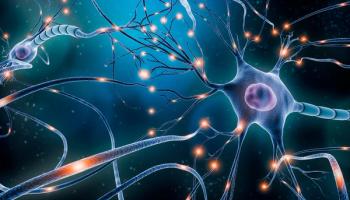
Multiple Sclerosis: Considering Symptoms and Diagnosis
Amit Bar-Or, MD, FRCP, FAAN, FANA: Multiple sclerosis [MS] can present with many different types of symptoms. In essence, depending on where the immune attack is in the nervous system pathways of the spinal cord of the brain, common presenting features of MS can include inflammation of the optic nerve, also known as optic neuritis. People can commonly experience double vision, instability of gait, weakness, numbness, or tingling in one or more limbs. Fatigue is a very common symptom of MS. There are sleep disturbances. There can sometimes be issues with bladder control and even bowel control, as well as libido and impotence presenting more typically later in the MS experience. But any or all of those symptoms may be part and parcel of a person’s symptomatic experience with MS.
Barry Hendin, MD: With respect to the symptoms of MS, I like to repeat what a patient once said to me long ago: patients with MS are snowflakes. Everybody has their own unique presentation, their own unique journey. There may be things that are quite common, to have fatigue or optic neuritis or some numbness or some weakness or imbalance. All those things may occur to many people with MS. But MS is still a unique journey. Everybody has their own set of unique circumstances and their own set of unique symptoms.
Amit Bar-Or, MD, FRCP, FAAN, FANA: For most people with multiple sclerosis, a diagnosis is made in their 20s and 30s, although MS can manifest even in the pediatric age group. Children as young as infants can have an attack that then turns out to have been the first clinical attack of multiple sclerosis. Similarly, at the other end of the spectrum, there are patients who can present with bona fide multiple sclerosis very, very late in life. There are even some examples of MS being discovered on autopsy, where a person went through their life without even realizing that they had it. The use of MRI, magnetic resonance imaging, has very much improved and facilitated diagnosis, so diagnosis is made in general earlier nowadays than it had been in the past. And, often, it is quite a straightforward diagnosis to make, but there are still situations where people sometimes have to wait many months, if not years, to ascertain the correct diagnosis of multiple sclerosis.
To make a diagnosis of MS, one still needs to fulfill 3 criteria, which include showing that there’s involvement in the central nervous system pathways in more than a single location; that there is involvement over time, meaning it’s not just a one-time event but that there’s some worsening over time or recurrence over time; and that they exclude other things that can look like MS. There’s a shortlist of MS mimics that are important for clinicians to be aware of that can behave very similarly. The MRI, which we’ve been using increasingly over the years, has substantially helped establish the diagnosis of MS correctly earlier on. Sometimes we use ancillary studies, such as spinal fluid analysis, looking for presence of abnormal antibodies and the presence of oligoclonal banding patterns. There’s no single test, either biologic or clinical, to make a clear diagnosis, and it becomes a combination of several different aspects. But the diagnosis has been facilitated over the years and is made earlier overall, mainly because of the use of MRI.
The diagnosis of MS can be conferred by any clinician. More often than not, they will end up seeing a neurologist, but this often depends on access. The requirement or the use of MRI as an important adjunct for the diagnosis sometimes limits where people can go to get that diagnosis, again depending on access. But, in general, the constellation of clinical imaging and laboratory features can amount to a diagnosis of MS conferred by any clinician, especially neurologists.
Newsletter
Stay ahead of policy, cost, and value—subscribe to AJMC for expert insights at the intersection of clinical care and health economics.








